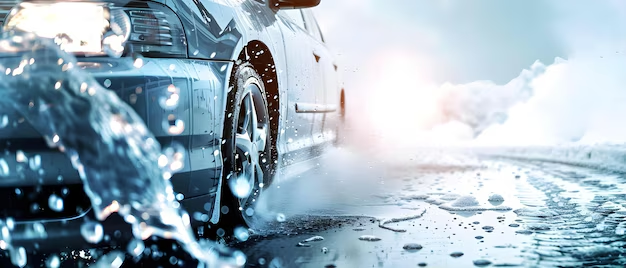
Water is an essential resource for various industrial operations, including automotive manufacturing. In India, the automotive industry is a cornerstone of the economy, contributing significantly to employment, exports, and technological advancements. However, poor water storage and management have emerged as a growing concern, affecting production efficiency, component quality, and overall business sustainability.
Water Dependency in Automotive Manufacturing
The automotive industry relies heavily on water for various processes such as metal casting, cooling systems, painting, and washing of components. Manufacturers require large quantities of clean and treated water to maintain quality standards and prevent corrosion. Poor water storage leads to contamination and inconsistent supply, disrupting these critical processes.
Effects on Production Efficiency
One of the major consequences of inadequate water storage is production inefficiency. Water shortages due to improper storage can delay manufacturing schedules, causing setbacks in assembly lines and an increase in operational costs. Many manufacturing plants use water-intensive cooling and lubrication systems, and interruptions can damage machinery, reducing productivity and increasing maintenance costs.
Impact on Component Quality
Poor water storage directly impacts the quality of automotive components. Contaminated water used in paint application and metal treatment can result in defective finishes and weaker structural integrity. Inadequate water purification methods can lead to rusting, affecting the longevity of vehicle parts and reducing consumer trust in manufacturers.
Environmental and Regulatory Challenges
Automotive plants must comply with environmental regulations that mandate responsible water usage and waste treatment. Poor storage practices lead to excessive water wastage, pollution, and non-compliance with government policies. Companies violating these regulations face penalties and potential shutdowns, affecting the industry’s reputation and market competitiveness.
Supply Chain Disruptions
India’s automotive sector is highly integrated with global supply chains, and any disruption due to water scarcity can lead to financial losses. Poor water storage can affect both raw material procurement and final assembly processes, delaying exports and reducing the country’s credibility as a reliable automotive hub.
Solutions and Future Prospects
To mitigate these issues, automotive companies must invest in efficient water storage solutions, such as rainwater harvesting, advanced purification systems, and sustainable recycling practices. Implementing smart water management technologies can enhance operational efficiency while reducing environmental impact.
Government initiatives supporting responsible water conservation can further help manufacturers optimize their resources. With proper policies and industry cooperation, India’s automotive industry can overcome the challenges posed by poor water storage and ensure sustainable growth in the years ahead.


